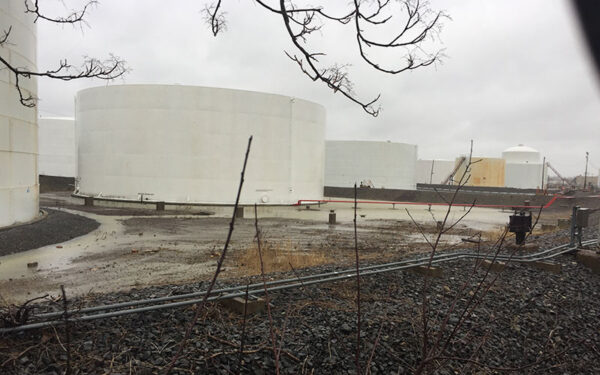
Maine's regressive new solar rule seems aimed at sunsetting clean local power in the state – just when more and more Mainers are demanding clean energy. Photo: EvgenySHCH via Shutterstock
Maine’s Public Utilities Commission just issued the most regressive rule to govern solar energy in the country, including a provision that punishes solar panel owners for generating their own clean electricity.
The Commission’s new rule flies in the face of the more than 4,000 comments Mainers filed opposing the draft rule and Mainers’ overwhelming support for solar energy. It is a simple fact that as the costs of solar energy continue to dramatically decrease, it will continue to be the fastest growing sector of the energy market. Clean, job-creating solar is playing a bigger and bigger role in every state in the country save Maine, making it hard for us to stake any claim to a motto we’ve long been proud of: “As goes Maine, so goes the nation.”
But we are not going to let the Commission roll back Maine’s progress on solar energy without a fight. CLF and our partners are exploring every legal option we have to save solar power in Maine, and we’ll need you by our side to succeed. Below is some more detail on the rule and how you can help.
The Commission Did Just the Opposite of What Mainers Want
Last week marked the end of a months-long process in which Maine citizens and businesses wrote and spoke out overwhelmingly in favor of clean, local solar power. They cited the jobs it creates, the energy independence it brings, the cost savings it generates, and the obvious environmental benefits that go along with it. Despite this support, however, Governor LePage’s appointees on Maine’s Public Utilities Commission finalized draconian amendments to the existing net energy billing (aka net metering) rule that go well beyond the draft rules published in the fall of 2016 that thousands opposed, and far beyond any other attack on solar energy in the U.S.
Solar Panels Will Now Be Less Affordable for All
The Commission’s new rule phases out net metering, a reimbursement system that compensates home- and small business owners for the energy they produce and feed back into the electricity grid. This system allows Mainers to gradually recoup the upfront costs of installing photovoltaic panels (check out this earlier blog for a crash course on net energy billing). Net metering is a win-win-win, benefiting solar panel owners and other electricity customers, our economy, and our environment.
Under the new rule, net metering will be phased out over a ten-year period starting January 1, 2018, with existing customers grandfathered for fifteen years. This essentially kills the financial structure that makes it affordable for most Mainers to be able to install solar panels.
Solar Panel Owners Will Get Charged for the Power They’re Generating
But that’s not all. Incredibly, the rule also directs utilities to charge Maine businesses and homeowners fees associated with energy produced and consumed on-site. In other words, the utilities will track the energy Mainers use in their private home or business – which their privately owned solar panels produced – and then charge them for it.
This is akin to getting a bill from the electric company at the end of the month for all the energy you saved by hanging your laundry to dry instead of using the dryer, as we noted at the time the new rule was released. Such a scheme is intrinsically unfair (think about the hue and cry if large industrial companies like paper mills were similarly charged for energy they produce and use on site by burning excess wood chips or industrial byproducts). It’s also unlawful. Plus, it’s a logistical nightmare, almost certainly requiring that a second meter be installed at the customer’s expense, to try to track this energy use.
Can It Get Any Worse? Yes, It Can.
So, the new rule lowers the financial incentives for new solar investments, and it punishes those who have already solar arrays by charging them for the energy they produce.
As if that’s not enough, the Commission also kowtowed to pressure from utilities and the governor and withdrew two key provisions that would have expanded solar in Maine. The first provision would have extended the net metering benefit to facilities with larger solar arrays. The second would have allowed for community net energy billing, in which multiple households and businesses can buy into one solar array (thus enabling Mainers who cannot afford solar installations on their own to nevertheless directly benefit).
The Bottom Line
What does this mean for solar development in Maine? Unfortunately, it makes the installation of solar less feasible by reducing its benefits for home- and business owners. That will lead to less investment in solar installations – which in turn will mean less affordable, clean, local power available to all Mainers.
Maine is already lagging far behind other New England states on solar. The Commission’s new rule does nothing to help Maine harness the enormous potential of local clean energy and reach its goals of reducing its greenhouse gas emissions.
Solar Will Prevail, and You Can Help!
Climate change demands we urgently end our addiction to dirty fossil fuels. The Commission’s harsh rule punishing solar customers and the solar industry is out of touch with the times and with the needs and demands of the people of the state. Mainers want more solar – for the growth and development of our rural economies, for the cost savings it brings to all electricity customers, and for the benefits it brings to our environment.
That’s why CLF and our partners are considering all of the legal options available to challenge the Commission’s damaging new rule. We have the right to ask the Commission itself to reconsider, and we could also take the rule in front of a judge and explain why its provisions are unlawful.
Meanwhile, the Maine state legislature is hard at work crafting comprehensive solar policy for the state, but the possible outcomes vary drastically.
Here’s how you can make a difference: Please call your state legislators and tell them that you want more solar in Maine. Setting solar policy in Maine is a job for the legislature and not the Public Utilities Commission. Last year the Legislature came one vote away from overturning Governor LePage’s veto of solar legislation CLF and many others worked hard to craft. The Legislature will be considering new legislation this year that, if passed, will take the place of the PUC’s new rule.
So get in touch with your state Representative and Senator, particularly those of you represented by members of the Governor’s party, and:
- Tell them that you care about Maine’s clean energy future and that the solar industry will bring new jobs to the state and growth to our rural economies;
- Tell them that net energy billing is the right policy for encouraging the development and installation of more solar, and that it should be mandatory; and
- Tell them that you support a solar rebate program to reduce upfront costs for residents and businesses to install solar
Thank you for doing your part!



